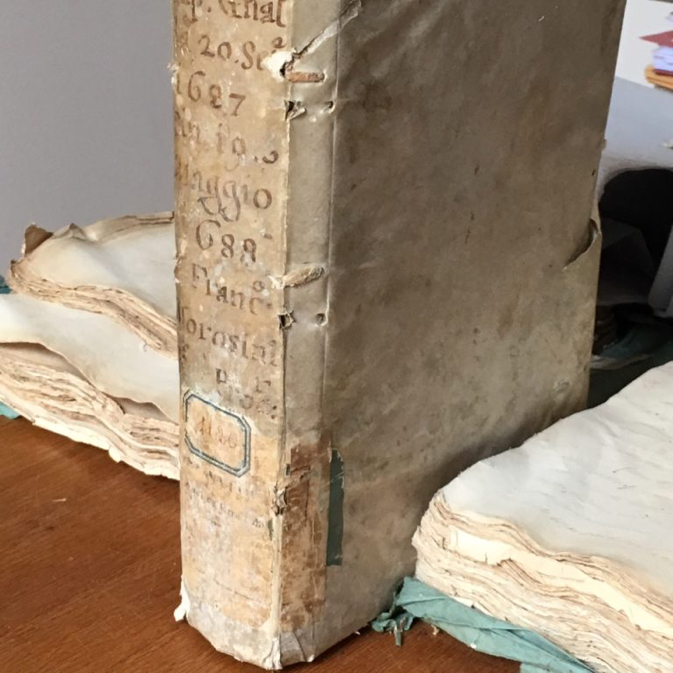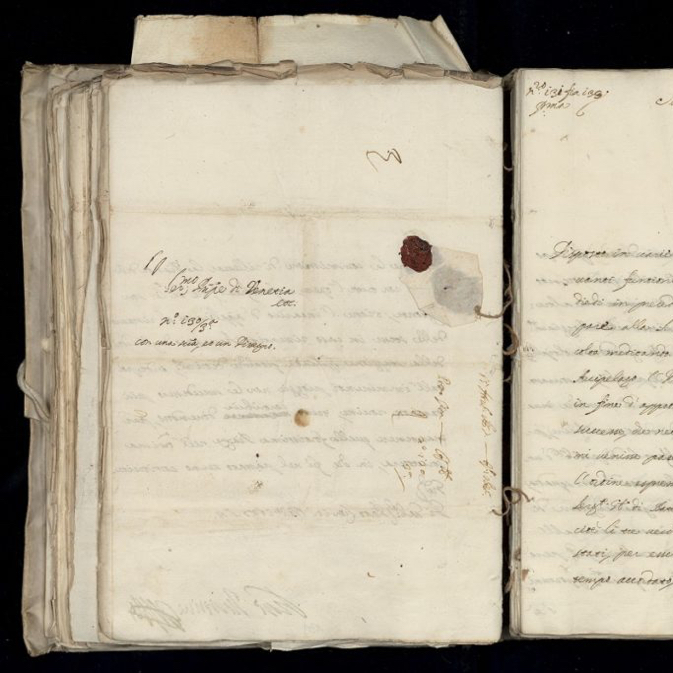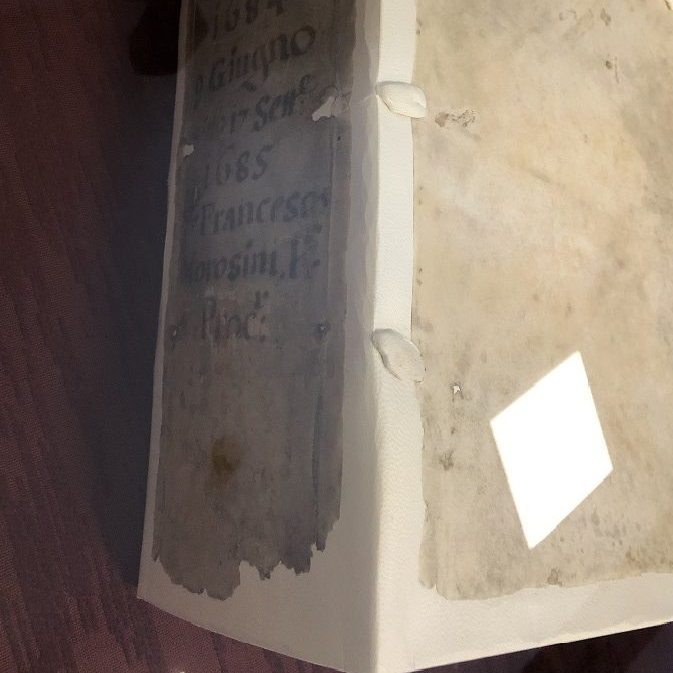Morosini's Dispatches
Project in collaboration with Venedig lebt (A) and Venice in Peril Fund (UK)
Francesco Morosini (Venice 1619 - Nafplion 1694), a descendant of an illustrious Venetian family, joined the navy at a very young age and devoted almost his entire life to military service. He was Captain General of the Sea four times, leading historical campaigns in the eastern Mediterranean; in particular, after the vicissitudes of the twenty-four-year Cretan War, in a further campaign against the Ottomans, he managed to conquer the entire Peloponnese between 1684 and 1688, earning the nickname Peloponnesiacus. He was Doge of Venice from 1688 to 1694. After his death in Greece, his remains were returned to Venice and buried in the Church of Santo Stefano.
During his prolonged absences from Venice, he maintained an intensive correspondence with the government of the Republic. From his dispatches, sent to the Senate on an almost daily basis, valuable information can be obtained on the military campaigns conducted and the lives of the officers, crews, and troops who fought under his orders.
This extremely rich documentation is kept in the State Archive of Venice, whose main office is located in Campo dei Frari. Of fundamental importance for the history of the Republic -from the first written testimonies until the fall of the Republic in 1797- the Archive was established by the Austrian Government in 1815 under the name of the General Venetian Archive. Today, it is a peripheral body of the Ministry of Culture.



In 2019, the city commemorated the four hundredth anniversary of the birth of the extraordinary figure, Francesco Morosini. As part of those celebrations, a documentary exhibition was set up presenting the 15 volumes containing the great leader's dispatches, which had been restored with the crucial contribution of three International Private Committees, namely the Austrian Venedig lebt committee, the British Venice in PerilFund, and the Swiss Pro Venezia Foundation.
This delicate operation was carried out by the Benedictine nuns of Rosano, near Florence, who specialise in preserving and restoring books and have already worked to save many of those damaged by the 1966 flood in the Tuscan capital. The treatment included preserving the Venetian Archive's distinctive bindings and parchment covers, cleaning, deacidification, stitching, and providing storage boxes.

